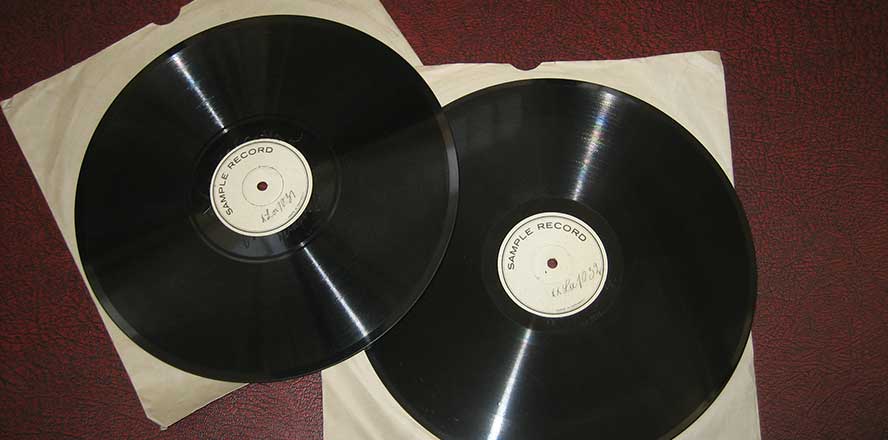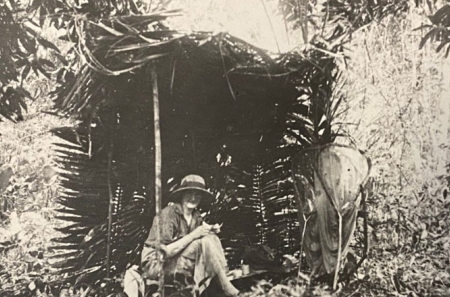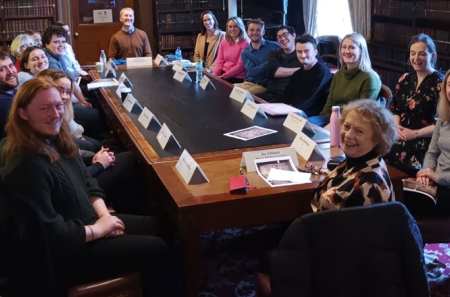
Doegen Records Web Project deposited at the Digital Repository of Ireland (DRI)
27 January 2022The Doegen Records Web Project is now under the stewardship of the DRI. Tionscadal Gréasáin Cheirníní Doegen, The Doegen Records Web Project - Digital Repository of Ireland (dri.ie)
This valuable resource contains the archive of Irish dialect sound recordings made during 1928-31. Listen to recitations of songs, folktales and other material from 17 counties. Crucially, it includes examples of dialects that are now extinct. The collection also includes a speech in English by W.T. Cosgrave, who was head of the Irish government that funded the recording scheme.
Doegen recordings
The Royal Irish Academy holds a collection of sound recordings usually known as the Doegen Records. The recordings on 12-inch shellac disks were made between 1928 and 1931 as part of a systematic Irish dialect survey. They record native Irish speakers from seventeen counties in three provinces. They preserve local Irish dialects from regions where Irish is no longer the first language of the people. Many of those local dialects are now extinct, which makes these recordings particularly significant for Irish dialectology. The recordings also preserve the voices of people from early twentieth-century Ireland, many of whom have descendants living in Ireland or overseas.
The content of the recordings consists of folktales, songs and prayers, along with miscellaneous items of Irish vocabulary such as the numbers from 1 to 30 and the days of the week. Individual speakers were instructed as to what stories and prayers to recite. The system adopted is indicated by the ‘Leaflet of Instructions’ reproduced below.
The technical aspect of the project was overseen by Dr Wilhelm Doegen (1877–1967). He was director of the Sound Department at the Prussian State Library (Lautabteilung, Preussische Staatsbibliothek), Berlin and had considerable experience of making sound recordings for research purposes. In the late 1920s he was commissioned to record Irish language dialects in Ulster, Connacht and Munster. The work was undertaken at the request of the government of the Irish Free State, led by W. T. Cosgrave. Wilhelm Doegen was directly involved in the Irish project during 1928. Thereafter the technical work of recording was continued by his assistant, Karl Tempel, who returned to Ireland in 1930 and 1931. Find out more


